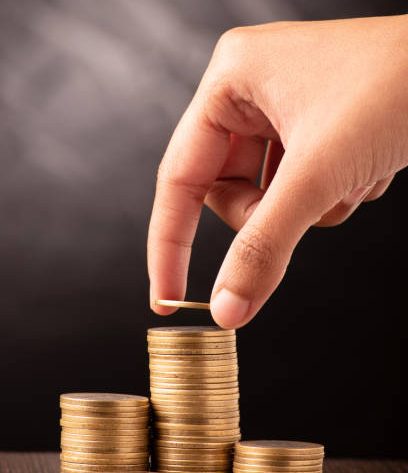How can I afford to pay for my housing, food, and other necessities if I only have $2,000 per month? What about insurance, health care costs, debt repayment, fun, etc? This is a big amount to cover, and it’s a zero-sum game.
Make a budget.
The budget is planned for each dollar. This is not magic, but it will give you more financial freedom and less stress in your life. How to create and manage your budget.
How to Budget Money
- Calculate your income after tax
- Select a budgeting plan
- Track your progress
- Automate Your Savings
- Practice budget management
Calculate your payment after tax
Add back any automatic deductions you make for insurance, superannuation, or savings to get an accurate picture of your expenses and savings.
Add up all your income, including taxes and expenses.
It would be best if you also familiarize yourself with the cash flow.
How to start?
- Look at your account statements. You can see how much money is coming into and going out of each account.
- Categorize your expenses. You could categorize your expenses into categories such as entertainment, rent, beauty, etc. Understanding where your money is spent will help you create the budget that best suits your needs.
Budgeting is important
Budgets must include all your needs and wants, as well as — and this is important — savings for emergencies and the future.
Examples of budgeting plans
- The Envelope System is a method of planning your monthly spending using envelopes and cash.
- Budget based on zeros: Allocate your entire income to savings, debt repayments, and expenses.
- The budget divides your income between needs, wants, and savings.
Track your progress
Keep a consistent record of your expenditures. A monthly budget is a great place to start.
Online budgeting and saving tools can help you keep track of your spending. MoneyBrilliant Apps, GoodBudget, and Frollo are all helpful.
Automate your savings
Set up regular direct debits to transfer money from your account to your savings account, for example, after each payday. Consider opening several savings accounts to save money for a specific purpose, such as a vacation or large expense.
You can also use an accountability partner or online group to hold you accountable for your choices.
Practice budget management
Over time, your income, expenses, and priorities may change. To manage it effectively, revisit it periodically, maybe once every quarter.
Ask yourself these questions as you manage your budget:
- What are the areas where you spend too much? Are there cheaper alternatives to what you currently pay for?
- What expenses can you reduce? Examples include take-out food, rideshare services, and food deliveries.
.
Priorities for budgeting and saving money
Priority No. The focus is to create a small emergency fund.
Experts recommend that you save up a few months’ worth of living expenses. Start with a minimum of $500 to cover minor emergencies and repairs. Then, build on that.
It’s impossible to get out of debt if you don’t have a plan for avoiding more debt when something unexpected occurs. You’ll also sleep better knowing that you have some financial cushion.
Priority number 2 is toxic debt. Priority No. 2 is toxic debt.
Then, it would be best if you tackled the toxic debts in your life, such as high-interest credit cards, payday and personal loans, title and rent-to-own payments, and loans with high interest rates. These loans have interest rates that are so high you will end up paying back two or three times the amount you borrowed.
If you are in one of the following situations, consider your options for debt relief. These include bankruptcy and debt management plans.
- Even with severe spending cuts, you can’t pay off your unsecured debt (credit cards, medical bills, or personal loans) within five years.
- Total unpaid debt equals at least half of your gross earnings.
Again, priority number 3 is saving for retirement. Priority No. 3 is again saving for retirement.
After you have paid off toxic debts, your next step is to put yourself on the right track for retirement. Save 15% of your gross earnings and, if possible, consider adding personal contributions to your super fund.
Priority number 4 is, again, your emergency fund. Again, priority No. 4 is your emergency fund.
Regular contributions will help you accumulate three to six month’s worth of living costs. It’s not realistic to expect a steady progression because emergencies will happen. However, you can still manage them.
Top of page
Priority Number 5 is debt repayment. Priority No. 5 is the repayment of debt.
You can make extra payments to repay your debt.
You may have a lower-rate debt that is often tax-deductible (such as a home loan) if you’ve paid off the most toxic debt. These debts should be tackled only once you have all your financial ducks in order.
You can only have a little wiggle here if you are able to save on necessities or spend money on wants. Your emergency fund and retirement funds will not be able to help.
Priority Number 6 is you. Priority No. 6 is for you.
Congratulations! Congratulations! You are in a good position if you have built up an emergency fund and paid off toxic debt while also saving 15% for your retirement nest egg. Your habit of saving has given you a great deal of financial flexibility. Do not give up.
Consider saving for non-emergency expenses, like a deposit on a house or your next vehicle. These expenses are inevitable, so it’s best to save rather than borrow.




